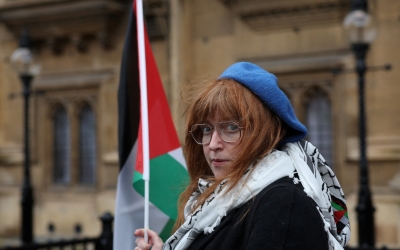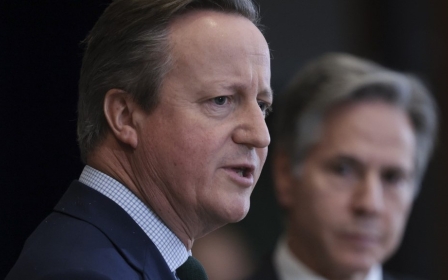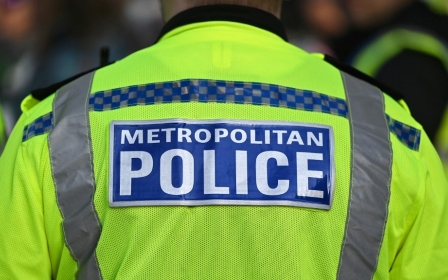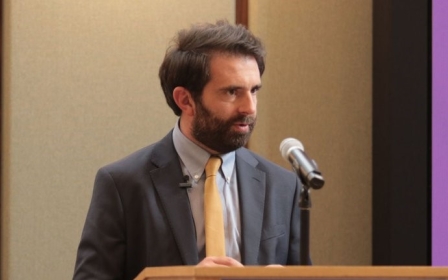UK: Pro-Palestine groups and politicians hit back at Rishi Sunak's 'extremism' speech
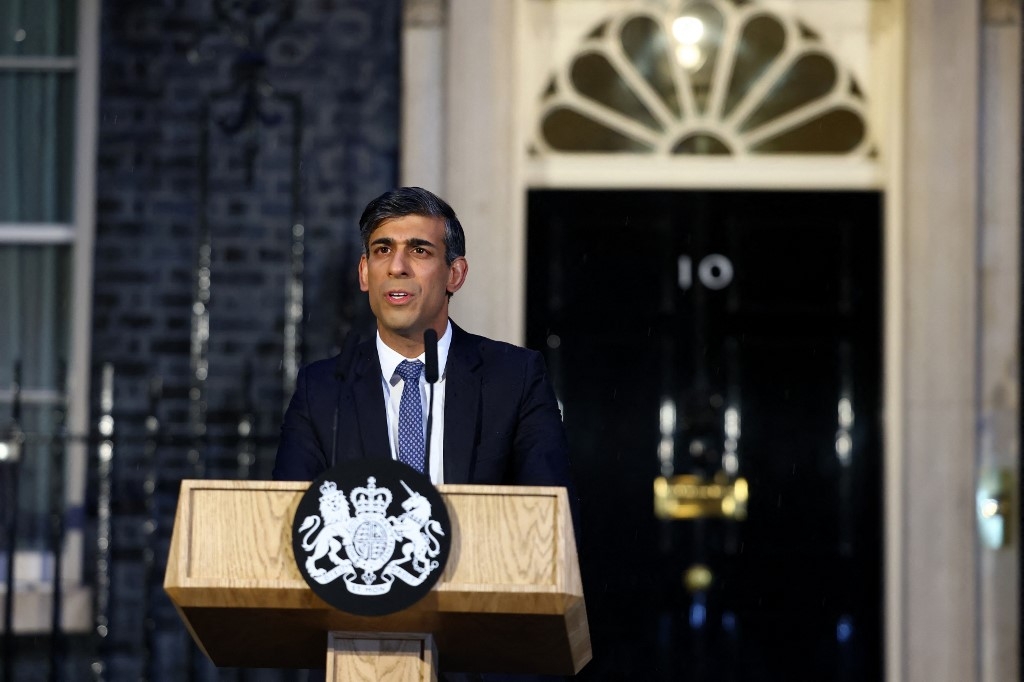
Pro-Palestine groups have hit back at UK Prime Minister Rish Sunak after he claimed Gaza demonstrations were indicative of "extremists" undermining British democracy.
In an impromptu speech on Downing Street on Friday, Sunak said the UK's "streets have been hijacked by small groups" that are threatening to "tear us apart", calling on the police to adopt a tougher stance toward Gaza protests.
"We have seen a shocking increase in extremist disruption and criminality. What started as protests on our streets has descended into intimidation, threats, and planned acts of violence," he said.
Earlier in the week, Sunak said that there was a "growing consensus that mob rule is replacing democratic rule", in reference to the protests in the UK.
He said "this situation has gone on long enough", in reference to protesters, with a direct message that "threats of violence and intimidation are alien to our way of doing things".
New MEE newsletter: Jerusalem Dispatch
Sign up to get the latest insights and analysis on Israel-Palestine, alongside Turkey Unpacked and other MEE newsletters
The speech, which came a surprise to many, was condemned by opposition politicians and campaigners, who said it appeared to threaten restrictions on the right to protest.
Ben Jamal, head of the Palestine Solidarity Campaign (PSC), said it was ironic that Sunak wanted to deal with "extremists" considering the UK government's support for Israel in the Gaza war, which has so far killed more than 30,000 Palestinians.
"Maybe he should start with politicians, political commentators and religious leaders who support a state, on trial for genocide, in its mass slaughter, and deliberate creation of famine," he said on social media.
"Not those protesting against it."
Caroline Lucas, the UK's sole Green Party MP, also criticised the speech.
"The mask has really dropped now, if there were any doubt who the real extremists are, it is Sunak's government - threatening to take visas off protesters and stirring up anti-Muslim hate," she tweeted.
Just a few days ago, a coalition of groups, which regularly organises protests to demand a ceasefire in Gaza, told journalists that "divisive rhetoric" by British MPs and "selective media coverage" are driving calls to curb protest rights in Britain.
Pro-Palestine organisations have levelled accusations against British politicians, claiming they are "creating a smokescreen" to shift focus away from demands for a ceasefire. This comes as pressure mounts on police to limit protests in central London.
Protest groups raised concerns over reports by Middle East Eye that the Community Security Trust was present in special police operations rooms during protests in London calling for a ceasefire in Gaza. The trust describes itself as a charity that "protects British Jews from antisemitism and related threats".
Despite the criticism of Sunak's speech on Friday, however, the leader of the Labour Party Keir Starmer said he broadly supported the points made.
Sunak was right to "advocate unity and to condemn the unacceptable and intimidatory behaviour that we have seen recently" said Starmer in a statement, adding it was important for the prime minister to "defend our values".
In contrast, Starmer's predecessor as party leader, Jeremy Corbyn, defended the right to protest and warned against Sunak's rhetoric.
"Protesting against the mass slaughter of civilians is not a threat to democracy. The real threat to democracy is a government that crushes our rights and silences our solidarity," he wrote on social media.
Middle East Eye delivers independent and unrivalled coverage and analysis of the Middle East, North Africa and beyond. To learn more about republishing this content and the associated fees, please fill out this form. More about MEE can be found here.


